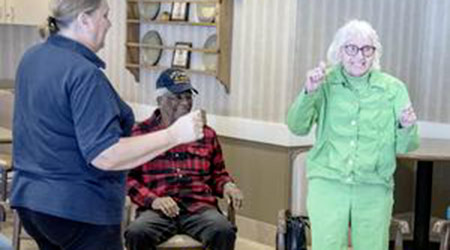Studies suggest that the unexplained absence of a nursing home resident is one of the most challenging issues faced in the care of older adults, according to an article on The News-Gazette.
A study published last April in the Journal of the American Medical Directors Association found 1,440 cases of unexplained absences among dementia patients. Those absences resulted in 82 deaths per 1,000 cases.
To help keep potential wanderers safer, an alarm bracelet can be attached to the resident's wrist, ankle, wheelchair or walker.
Exterior doors can also be equipped with alarms that require entering a code to avoid the alarm from sounding. But for fire-safety reasons, these doors can still be pushed open without a code being entered.

 Regulations Take the Lead in Healthcare Restroom Design
Regulations Take the Lead in Healthcare Restroom Design AHN Allegheny Valley Hospital Opens Expanded Inpatient Rehabilitation Unit
AHN Allegheny Valley Hospital Opens Expanded Inpatient Rehabilitation Unit HSHS and Lifepoint Rehabilitation Partner on New Inpatient Rehab Hospital in Green Bay
HSHS and Lifepoint Rehabilitation Partner on New Inpatient Rehab Hospital in Green Bay Turning Facility Data Into ROI: Where Healthcare Leaders Should Start
Turning Facility Data Into ROI: Where Healthcare Leaders Should Start Sutter Health Breaks Ground on Advanced Cancer Center and Care Complex
Sutter Health Breaks Ground on Advanced Cancer Center and Care Complex